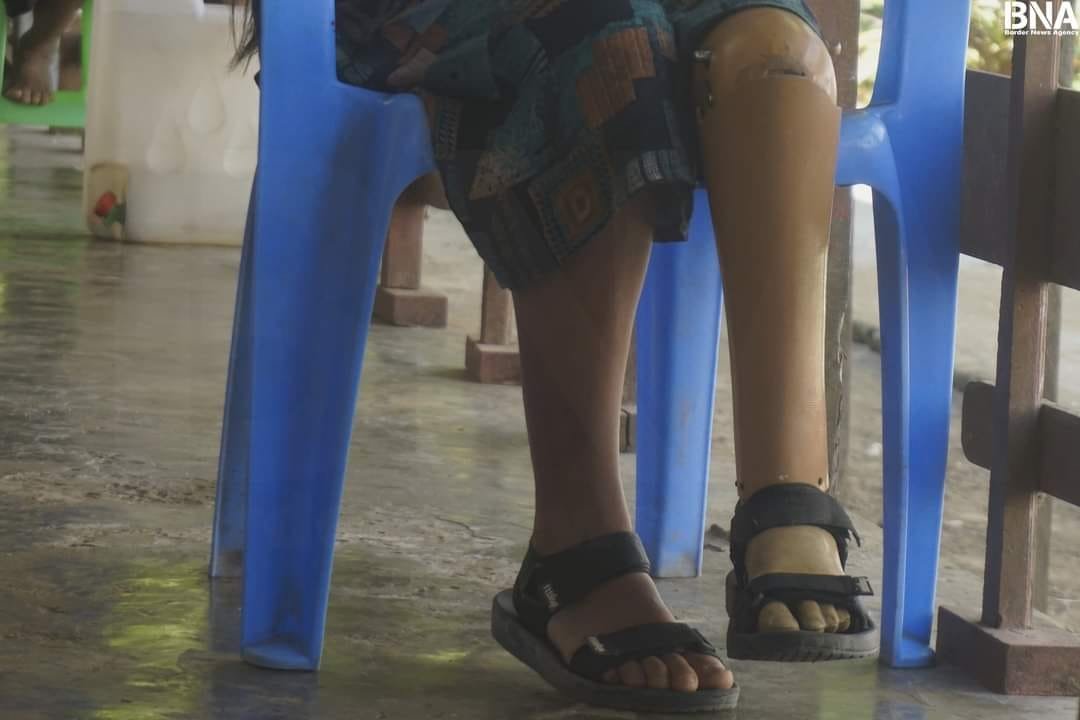Disabled women living under the administration of the Arakan People’s Revolutionary Government are reportedly in urgent need of assistance, according to displaced persons.
These disabled women are said to require more support than other displaced individuals, as they are facing significant challenges in securing basic needs such as food, shelter, and healthcare.
Among them, disabled women in remote and hard-to-reach areas are reportedly facing multiple challenges due to limited access to transportation and connectivity. These displaced women are said to be in greater need of assistance as they struggle to cope with the difficulties of their situation.
“Disabled individuals in villages and remote areas are suffering more,” said a disabled female war refugee to Border News Agency. “It’s even worse in places where transportation is difficult. No one comes to help, and no organizations provide any support. Even securing basic necessities like food and shelter has become extremely challenging,” she added.
Additionally, disabled female war refugees are reportedly living in unsafe and insecure conditions, with inadequate shelter. They are said to be staying in areas that lack proper bathing facilities and secure toilets. Furthermore, they are struggling without basic necessities such as clothing, blankets, and mosquito nets, according to the disabled refugees.
Moreover, disabled female refugees reportedly lack access to healthcare services and do not receive support for rehabilitation equipment. As a result, they are said to be enduring extremely difficult living conditions, struggling to survive.
In addition to challenges related to food, shelter, healthcare, and security, disabled female war refugees are also reportedly living in constant fear of airstrikes from the Myanmar junta. As a result, they are experiencing significant psychological trauma, according to the displaced refugees
“Some of them can’t even walk. When they hear the sound of airplanes, everyone is terrified, but the disabled ones are even more afraid because they can’t run. Some have to use sticks or other makeshift tools to walk,” said the mother of a disabled female refugee to Border News Agency. “I want to see them receive help,” she added.
According to a statement issued by the Humanitarian and Development Cooperation Office (HDCO) of the Arakan People’s Revolutionary Government on November 18, nearly 360,000 women have been displaced due to the conflict in Arakan over the past year.
These disabled female war refugees are in need of humanitarian assistance, including support for basic needs such as food, shelter, and healthcare. They also require rehabilitation equipment, such as prosthetic limbs, to aid in their recovery and regain mobility.
According to the people of Arakan, disabled female war refugees are more likely to become disabled due to the actions of the Myanmar junta, such as landmines, drones, heavy weapons, and airstrikes, compared to those born with disabilities.






